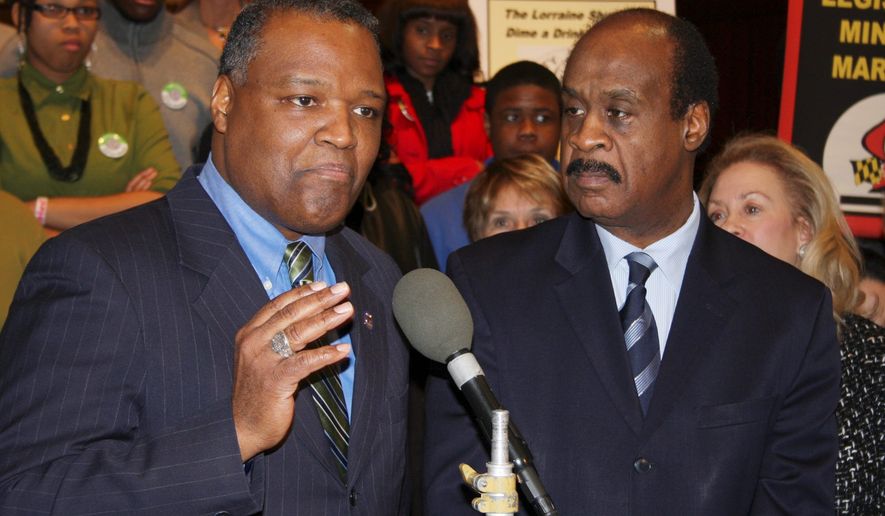A preliminary investigation of the pharmaceutical industry has uncovered misleading statements by drugmakers about the risks and efficacy of their products, according to a law firm hired by Montgomery County to sue Big Pharma for its role in the county’s opioid epidemic.
“Our investigation has revealed that manufacturers intentionally misled prescribers, patients and the public regarding the appropriate uses, risks, safety and efficacy of prescription opioids,” attorney Aelish Baig said Wednesday in an email to The Washington Times.
Ms. Baig, a partner with the San Francisco law firm Robbins Geller Rudman & Dowd, said the investigation is nearing completion and a complaint will be filed in January.
On Tuesday, Montgomery County Executive Isiah “Ike” Leggett announced the county’s hiring of Robbins Geller to sue the pharmaceutical industry.
During a Tuesday press conference at the County Executive’s Office in Rockville, Mr. Leggett introduced Ms. Baig, who said that drug manufacturers and distributors had failed to report suspicious sales of opioids, in violation of state and federal regulations.
That failure to report, as well as misleading marketing, forms the basis of the county’s lawsuit, she said.
Mr. Leggett said he sought legal action to hold companies responsible for their role in the crisis.
“I wish I could tell you that Montgomery County is immune from this epidemic. Unfortunately, I cannot do that.” Mr. Legget said Tuesday. “Death, addition, broken families, broken lives — we are living this reality each and every day.”
A study by the Montgomery County Council’s Office of Legislative Oversight this summer found that the county has had “sharp increases” in drug-related deaths in recent years, but fewer than other jurisdictions in Maryland. Raymond Crowel, chief of behavioral health and crisis services for the county’s health department, said 84 county residents died of opioid-related causes in 2016.
“And sadly, tragically, we are on pace to equal or exceed that number this year,” Mr. Crowel said during Tuesday’s press conference.
Statewide, there were 1,856 opioid-related deaths in 2016, a 70 percent increase over 2015, according to the Maryland Department of Health and Mental Hygiene. Gov. Larry Hogan declared a state of emergency in the opioid crisis in March.
Nationally, the Centers for Disease Control and Prevention estimates that 90 people die from opioid overdoses each day, with 30,000 Americans dying in 2015 alone.
Up to 80 percent of opioid addicts begin as medical patients with a legitimate prescription, according to the federal Center for Behavioral Health Statistics and Quality. However, the addictive nature of the expensive drugs result in many users stealing to support their habit, and eventually switching to the cheaper street drugs like heroin, or illegally recreated ones like fentanyl.
Mr. Crowel noted that the opioid cost is not just measured in lives lost, but also in Montgomery County’s overtaxed human services.
“We have police, fire and rescue, mental health, substance abuse and public health all working together to try to respond to this need,” he said. “But we have to [work harder] to get these prescription opioids off these streets.”
Montgomery County Attorney Marc Hansen said that Robbins Geller is especially qualified to represent the county due to the law firm’s long record of winning major fraud cases.
In 2005 Robbins Geller recovered $7 billion for the investors of the failed Texas energy company Enron. Last year, the firm recovered $1.5 billion in 2016 as part of a class-action complaint against British bank HSBC’s subprime lending that contributed to the 2008 housing crisis.
The firm also recovered $400 million in a 2015 settlement for shareholders pharmaceutical manufacturer Pfizer affected by a marketing fraud.
• Julia Airey can be reached at jairey@washingtontimes.com.




Please read our comment policy before commenting.